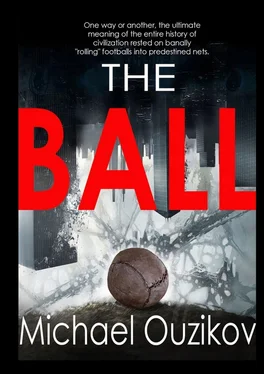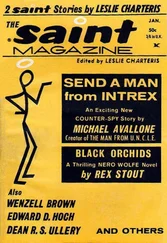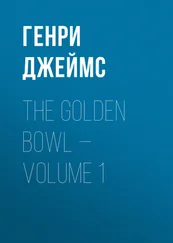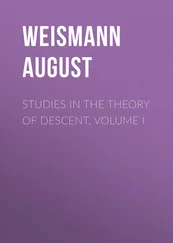In May 1971, the company was chosen by an American construction giant to lay the groundwork for a chain of resorts in Cancun, a fast-developing coast of the Yucatan Peninsula. The contract turned out to be beneficial to both parties. The Americans got relatively inexpensive and skilled labour, without having to spend on training local workers. Diego, for the first time, received an international contract – in particularly, such a profitable one by Argentinian standards. His duties included, among other things, the delivery of the construction crew to Cancun and placing them in the territory. There they were to prepare the construction site for the Hotel Caracol, which was to be part of the American-controlled Stanebridge chain. So, an Argentinian crew was headed to Mexico, crammed inside five rusty school buses, of bright-yellow colour and Californian origin in a former life. The buses were accompanied by a 1964 Volkswagen caravan painted with bright exotic flowers, leaves, marijuana, and fingers in a «V» gesture. Diego bought this vehicle for three hundred dollars (and two bottles of good house wine from Aunt Amia) from a young American couple that decided to permanently remain in such a glorious corner of the world, Argentina.
The two weeks in Mexico flew by swiftly. Diego Gonzalez, Sr. only returned to his sleeping trailer late at night, spending all the days at the construction site. All these days, Diego, Jr. was completely on his own. Running around on miles of white beaches, he discovered more and more secrets. His friends from school could only envy how much Diego was able to discover in the past week. Sometimes, while wandering in the thickets of the dry jungle, he found a peculiar house with strange statues carved from white limestone. The figures were scary, with bulging eyes and bared fangs. Their gaze was constantly fixed on Diego, no matter where he went. He was taken by panic. That is why he couldn’t get close to any of them.
One day, while playing in the woods, Diego got lost. There was only a dirt road here leading to the construction site. There was just the sound of the sea, which Diego would have readily followed. But it all disappeared. Diego was frightened, because all the landmarks that his father had pointed out in case he’d get lost were no longer there. He let out a few shouts from between the palms of his hands, but he only heard back the singing of the birds and the rustle of dry leaves.
Suddenly, a man of small height emerged into the clearing where Diego stood. The man raised his eyes at the sky. He had a crooked walk and was dressed in a ridiculous loin skirt, coarse, but bright. This black-tanned man with a big, lumping head asked Diego something in a guttural and completely incomprehensible language. Seeing that the boy did not understand, the old man smiled broadly and made a hand gesture inviting Diego to follow him. What could Diego do? The sun was setting, and he could not find his way back without assistance in any case. And, of course, spending such a long day under the sun, the last few hours of which the boy was without food and water, was taking its toll on Diego’s body. Not to mention, the stranger did not look evil at all.
The small village to which the stranger brought the young traveller had already plunged into darkness and sleep. All that Diego heard were hens clucking, babies crying, and the crackling embers of a smoldering campfire. The stranger led Diego into a small hut and gave him a drink of fresh water, although warm and stale, and offered a couple of tortillas from a small table. Then, Diego’s saviour fished out a pile of hard, striped blankets, spread them out on the floor of the hut, and folded one of the blankets into a pillow. Diego fell on all of this benevolence and quickly fell asleep.
The saviour waited until Diego’s breathing levelled off and then covered the boy with a light blanket, quietly closed the simple door, and exited to the clearing in the centre of the village. Beside a smoldering campfire in a clearing sat a motionless figure of a dried-up old man, who was silently staring either at the embers or at a myriad of stars on the black and blue horizon. He had the jaw of a power-seeker and the forehead of a philosopher. This forehead was cut up by numerous wrinkles and one deep, vertical scar that must have stopped healing a long time ago. He sat on the ground, legs crossed and covered by a round, dark object the size of a coconut. Diego’s saviour approached the old man, leaned over, and whispered something in his ear. The old man subtly nodded and again was left alone without even turning his head towards the tribesman.
45° 27» 57» N
9° 11» 21» E
Milan, Italy
May 14, 1991
Rodion Karlovich Teichrib had a long way to travel. Multi-storey buildings of the renaissance and neoclassical periods gave way to brick and mortar buildings of the Milanese suburbia, complete with graffiti, broken and dried up paint, and sometimes empty windows. But Rodion Karlovich did not pay much attention to the surroundings that were flying by in the last rays of the sun. The pain in his temples was becoming simply unbearable. The bus slowed down sharply, pulling up dust from a nearby construction site, and stopped at a crumpled metal frame that had once been a bus stop.
With a flick of his sun-burnt hand, the little man commanded Rodion Karlovich to exit. The professor obeyed silently and without question. Stepping onto the dusty pavement of Via Privata Ofanto, he looked around in search of a pharmacy or a sign with a green cross. His head continued to crack. It was either the heat or the tedious morning lecture on the contemporary and historical place of the Soviet Union in the global political system, featuring a bunch of useless questions from the audience about the possible construction of a «new democracy» in the USSR.
Meanwhile, the Italian, quickly shuffling his slightly bowed legs and constantly looking around and oddly waving his hand at the hip, called for Teichrib to follow him down the little road. Obedient as if in hypnosis, Rodion Karlovich silently trudged after the old man. He did not have far to go. The old Italian led him to a desolate but noisy place – right at the exit of the Tangenziale Est motorway. He could hear how the nervous drivers of cars and trucks were honking on the bridge above him. But here, at the bottom, neither dust nor noise could prevent vines from growing an intricate green web on the white wicker porch. Tomato bushes held by thin smooth stakes stood at the perimeters of properties, separating neighbours with their low hedges. It smelled of sweet wine and fresh bread. This was not Milan – it was Lazio.
The old man took Rodion Karlovich to a house and with a gentle hand gesture invited him inside. Noticing a faded «Vecchie-Nuove» sign and a lot of old utensils and unknown junk, Rodion Karlovich concluded that he was in an antique pawn shop. Everything that happened afterwards played out like a strange little comedy, complete with black humour. The professor was standing in the middle of a small room cluttered with trash, surveying all this with increasing interest despite his severe migraine. The old Italian disappeared behind a partition. He quickly returned, holding a glass of water with a large bubbled tablet fizzing inside in one hand, and clutching a large piece of boiled corn like a golden sword in the other hand. And under his arm, he was holding a small black object that looked like tree fungus or a good-sized turnip.
The old man pushed the glass to Teichrib, who took it without delay. Then, the Italian thumped his finger on Teichrib’s temple and said, « Si prega di bere, da un mal di testa. » Rodion Karlovich’s modest knowledge of Italian prompted him to understand his companion’s words as «Drink please, it’s for the headache.» The professor promptly drank the bubbling liquid with an aftertaste of aspirin, closed his eyes for a moment, and then nearly fell, receiving a severe blow to the head.
Читать дальше












